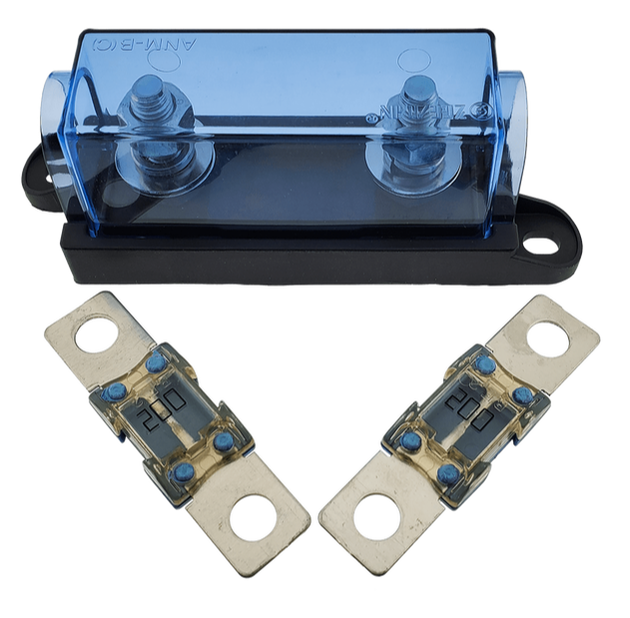I'm sure I am missing something so please set me straight.
Regardless of system voltage, ANL fuses appear to be the preferred fuse type used here on the forum, yet when I look at the Will Prowse Websight, he recommends Mega fuses. He goes a step further saying, "Stick to these fuses if you do not want to have problems with your 12V system."

Moving on the T class fuses. Will only mentions their use for a 48-volt system but reviewing forum posting I often see mention of the need to use a class T fuse on the main battery cable.
With the above information I would conclude Mega fuses are the best option for a 12-volt system and a class T fuse is not needed in a 12-volt system.
As I tinker with the electrical design for a mobile application that includes two, 100ah 12v SOK batteries and a 1500-watt inverter, I find the more I read, the more I need to ask questions.
Regardless of system voltage, ANL fuses appear to be the preferred fuse type used here on the forum, yet when I look at the Will Prowse Websight, he recommends Mega fuses. He goes a step further saying, "Stick to these fuses if you do not want to have problems with your 12V system."

Solar Power System Fuses and Circuit Breaker
Building a vehicle mounted solar power system? Let me help.
www.mobile-solarpower.com
Moving on the T class fuses. Will only mentions their use for a 48-volt system but reviewing forum posting I often see mention of the need to use a class T fuse on the main battery cable.
With the above information I would conclude Mega fuses are the best option for a 12-volt system and a class T fuse is not needed in a 12-volt system.
As I tinker with the electrical design for a mobile application that includes two, 100ah 12v SOK batteries and a 1500-watt inverter, I find the more I read, the more I need to ask questions.


